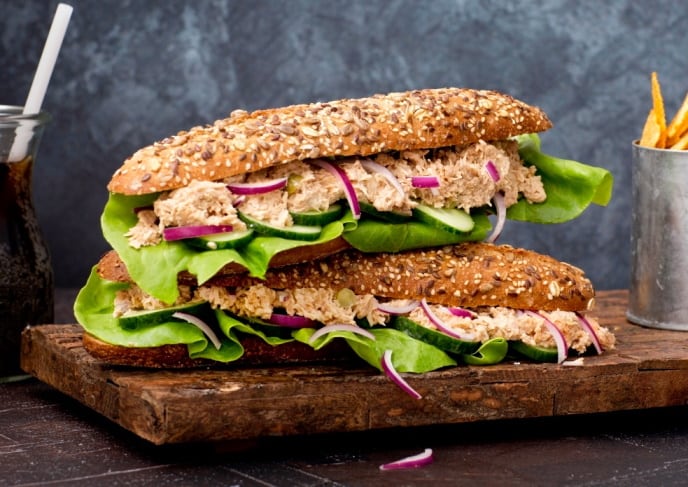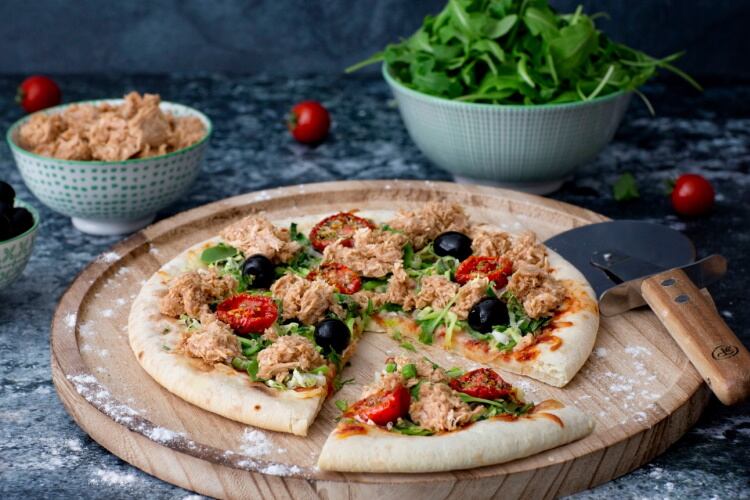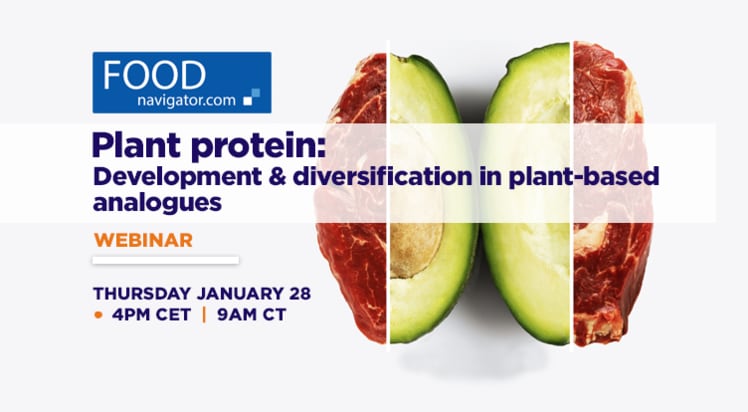Having worked in the plant-based space since 1990, family-owned Schouten already has a broad portfolio of vegetable-based protein alternatives. But, launching this month, Schouten’s plant-based tuna analogue is the company’s first fish substitute.
“We believe this alternative fish space will gain more attention in the coming years. There’s a lot of potential,” marketing manager Mark van Noorloos told FoodNavigator. However, he added: “We do think meat substitutes will remain many times larger.”
TuNo’s rollout plan
TuNo took more than a year to develop, with a protein base of wheat and soy. According to product manager Annemiek Vervoort, it offers ‘the same bite and taste as real tuna’.

TuNo is suitable for eating cold and Schouten said it can be used in a number of applications: from salads and wraps to ready meals and pizzas. The first application of TuNo will be rolled out by ‘a large Dutch retailer’ at the end of this month, the company added.
Schouten will sell the fish-free tuna alternative ‘primarily as an ingredient for food manufacturers’. The company works with a range of customers, including retailers, manufacturers and foodservice businesses. Schouten's products are largely sold under private label by supermarkets in the Netherlands and overseas.
“We see opportunities in this field. We are investing a lot in innovation and are a B2B partner for retailers, Quick Service Restaurants, foodservice companies and food manufacturers worldwide,” van Noorloos told us.
“Our main European target markets are the Netherlands, Germany, UK, Belgium, France and the Nordics,” he added.
Why tuna?

Schouten believes that products like TuNo can play an important role in helping to protect overfished and endangered species.
“All tuna species are heavily overfished and a large number of species are threatened with extinction,” Vervoort noted. “It makes sense that in addition to replacing meat, people also think about replacing fish. We are starting with a plant-based tuna because we thereby contribute directly to a sustainable solution to a global problem.
“The product… is for anyone who wants to enjoy the taste of tuna in a sustainable way.”
In addition to the ecological reasons for targeting the tuna segment, there is also an important business case.
According to data from the European Commission, the top five seafood species consumed in the EU – tuna, cod, salmon, Alaska pollock and shrimps – accounted for 44% of total volumes in 2017.
Van Noorloos elaborated: “Because this is a niche market it’s important to focus on the bigger and international well-known species.”
Schouten’s R&D teams are now working on additional alternative fish products. This effort continues to be shaped by a focus on the biggest selling fish species, van Noorloos told this publication. This includes cod and salmon, he noted.




